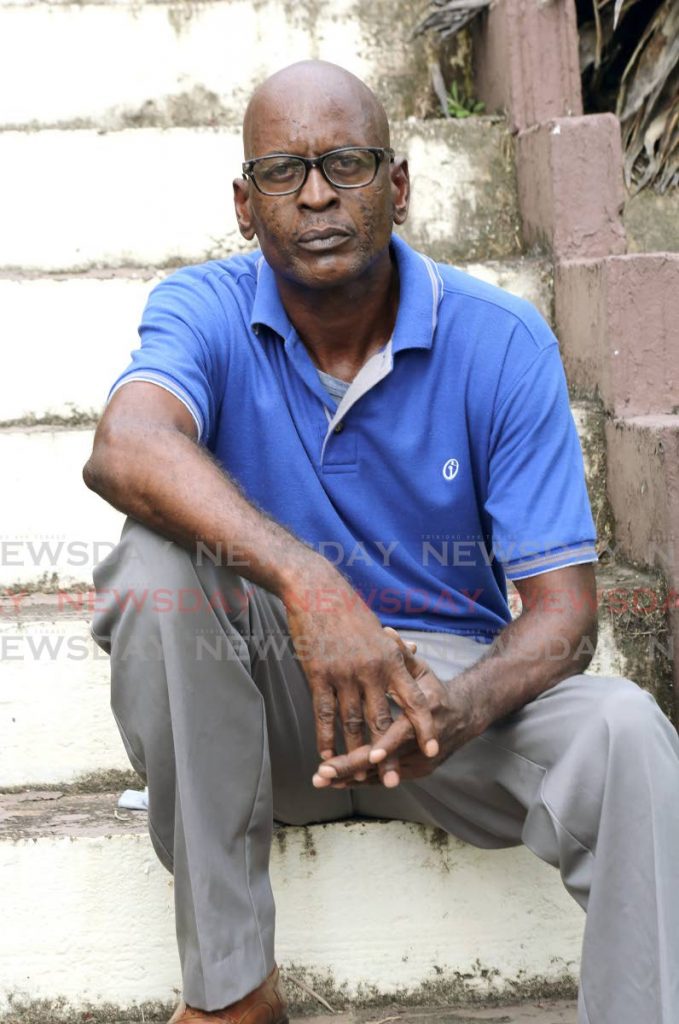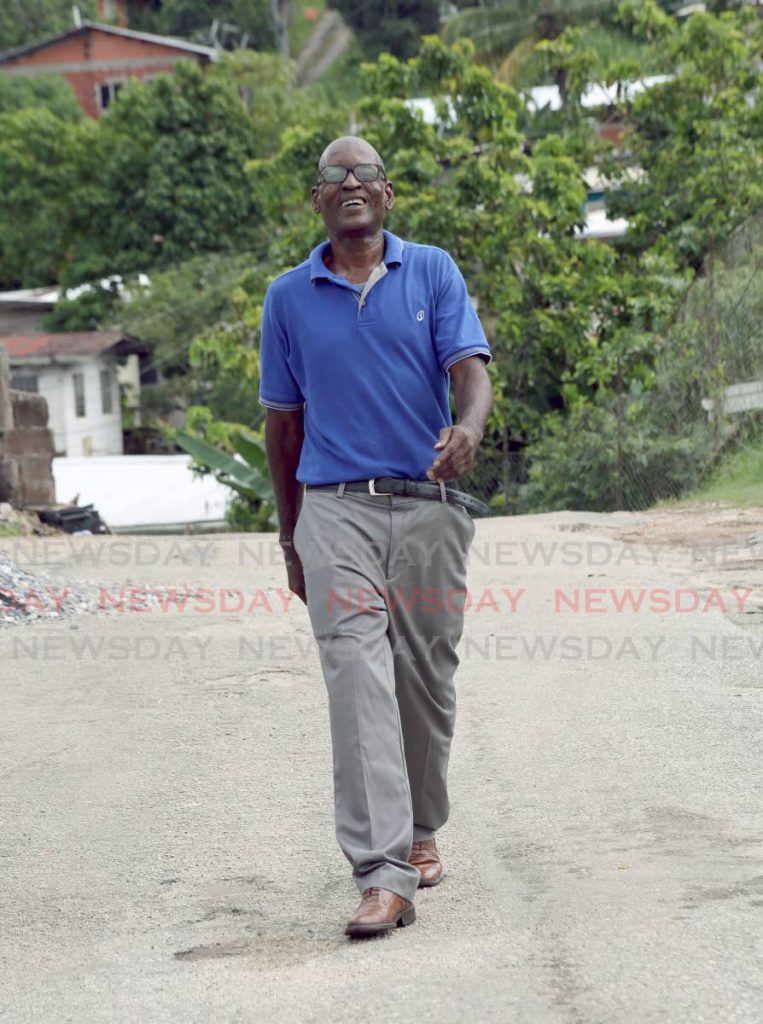Wayne Garcia: ex-Carrera inmate finds purpose in prison debate team

Wayne Garcia thinks of Carrera Convict Prison, its current battle with covid19 and the way the prison has shaped his life. He recalls the early days of the worldwide pandemic and the fear that initially hit Carrera inmates when they heard of covid19.
He remembers inmates in Carrera boasting, “'We are the only island in the world where there is no covid.’
“When I was there, covid19 protocols were strict and inmates wore their masks,” he said.
Garcia felt lucky to be released from the island prison on February 21, before covid19 hit Carrera.
After waiting ten years for his trial, he had been convicted on June 20, 2018 for possession of a gun. He insists the charge was “bogus.” This was his second sentence in Carrera.
The first came while Garcia was serving in the regiment. He had joined the army when he was 19. While serving, he was arrested for possession of 100 pounds of marijuana. Sentenced to six years of hard labour, just after the 1990 coup attempt, he went to Carrera for the first time on March 8, 1990.
His second charge came in 2008.
“I went to a gas station in Mayaro. I was intoxicated, had a quarrel, the police came and I had a confrontation with the police. They charged me for resisting arrest and then for possession of a firearm.
“My behaviour was inappropriate. I admit that,” he said, “but I had no gun,” he insisted.
Over the years, there were other charges for obscene language and a charge two decades ago for chopping a man.
Now, Garcia said, “I’m not going back to prison. I made up my mind inside of there to leave the crime life behind. I want to make a flip in life.”
Now 57, he said, “You’re never too old to change. Some people take longer than others to see the light, but there are people who come out of prison rehabilitated.
“Even when I was into crime, I always had an urge to come out of that life.”
As a young man, he said, “I got into trouble out of curiosity and a need for adventure. Really and truly, a lot of young men get into crime because they need money, and they can’t get an honest way to make money.

“I know that is hard for people to understand, but there are places way behind the ones you see, where people don’t get chances. They really don’t. They do one crime, and that is enough to put them away for life.”
The last time Garcia went to prison, he signed up to participate in the Wishing for Wings/Prison interstation debates. He joined Carrera’s debate team. That choice, he said, helped him focus on his dream. “I had decided to rehabilitate and reform myself in prison.”
Turning over a new leaf for any prison inmate is difficult in the best of times. Opportunities for jobs are virtually nonexistent once someone has a prison record.
Starting over in life during a pandemic might seem totally impossible, but Garcia said he made his mind up in prison that inmates have to create their own opportunities.
Joining the Carrera debate team sparked his dream of community outreach. He remembers how it happened.
“Members of the debate team used to be in the school. I got to know Aaron Charles, the team captain, and I decided to join.”
He had never taken part in a debate before, but Garcia, who is talkative, outgoing, articulate and determined, saw the benefits of debating.
“When I began to learn about debates, I realised this was me all the time. I felt I was a natural debater. I saw videos of the older debate team, and I was excited.”
He served as the closer in a debate against the tough Golden Grove Remand team on the topic of whether Venezuelan immigrants should be allowed into TT. Carrera lost, but Garcia felt successful.
“I was kind of nervous for my first debate at Golden Grove Prison, but when I saw other prisoners I knew, and how comfortable some of them were at the debate, I tried my best to make myself comfortable.”
By the end of the debate, he said, “I felt so good – like I achieved something. I felt good I could get that kind of exposure while I was in jail. I felt really good for a long time after the debate. It has me feeling good all now just talking about it.”
He said the skills he learned from debating felt like something that could be used for life.
“The debate team prepared me for everything I wanted to do. There was something bubbling in me the whole time. The debates gave me exposure. They helped to energise me and gave me the courage to face a crowd and talk to a crowd. I learned to do research and got an understanding about organising thoughts.”
Now he wants to start community debate teams for young men.
“Being able to stand up and express your views has a big benefit for everyone. Debates teach teamwork, organisational skills, research and communication skills. They give young people something constructive to do.”
He also wants to develop community-based employment programmes for marginalised people.
“There are people who don’t have the links to get jobs – especially if they were in prison. Many government jobs depend on your contacts.
“The whole thing is to give youth a sense of hope. You join this community-based organisation, come to our meetings to talk about work, and we will set up jobs.”
He plans to target construction jobs and agriculture.
“I want to grow cucumbers, tomatoes, cabbage, green peppers, ochroes – short crops and open vegetable stands in communities,” he said.
Garcia is currently trying to register an NGO and to link up with the Ministry of Community Development.
“They have good skill-based programmes we can use, like PVC-furniture-making and decorative tiling. But the problem is a lot of those programmes don’t reach the people who need them most. They don’t reach places that people don’t want to target for jobs.”
Garcia, who was born in Biche and attended Rio Claro Secondary School, says he knows his idea will work because people who are given a chance in life are grateful for the opportunities they received.
“I got shot twice, I passed through this tough life and crime – and I survived the life.
“I want to stop people from being gunned down. I want to give young people a chance.
“That means providing work for everyone. Sometimes they need someone to talk to, someone to offer honest work. Life would have been different for me if I had someone who had talked to me.”
At the end of the day, Garcia said, “There are many people who can’t depend on Government or anyone to help them. We have to do something for ourselves.
“I always say I am not going back down the crime road. I have no work, but I am bearing it. I have ideas to make life better for myself and others. The interstation debates taught me that we all have a voice.”
"It’s a dangerous situation," he added, "when many people in society feel they have no voice and no hope."
Debbie Jacob started the prison debate programme and the Wishing for Wings Foundation, which works to educate and rehabilitate young prisoners.

Comments
"Wayne Garcia: ex-Carrera inmate finds purpose in prison debate team"